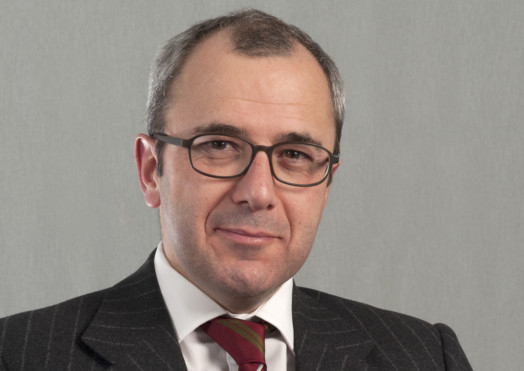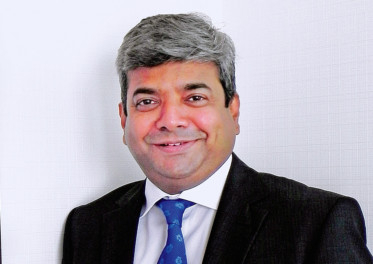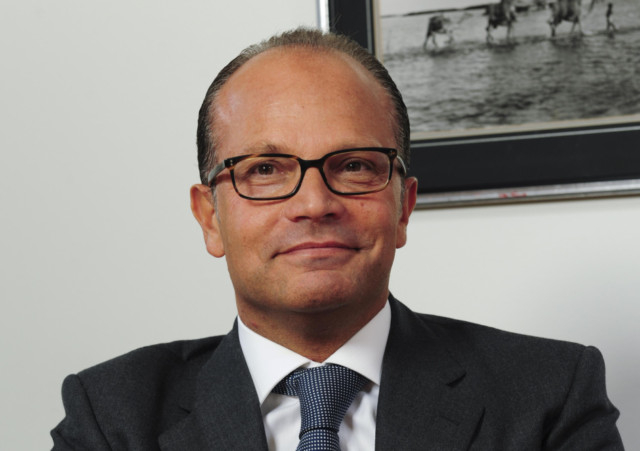
Early last month, Lombard Odier and Pictet, two of Geneva’s oldest private banks, announced the establishment of a corporate partnership overseeing limited companies. While the managing partners will continue to own and manage the firms, it will be without unlimited liability. Essentially, any liability now rests with the company rather than the people, unlike the traditional unlimited liability structure where partners are expected to be personally liable for its activities.
However, tradition and private banking are not words that are used together anymore. Bankers belonging to centuries-old institutions say their world has changed at a pace never seen before. New regulations, the shifting of the world’s economic centre, competition and demanding clients are changing the very DNA of private banking.
At Lombard Odier, which has been a family business for seven generations, Arnaud Leclercq, Head of New Markets, tells GN Focus the new structure will be better suited for expansion.
“Other family business owners will understand that what this does is change the ownership structure. The new structure facilitates ownership with a holding company. There is now a new holding of shareholders, which controls the business. This is a better organisation and structure, easier for international expansion.
“At the same time, we remain a pure Swiss bank — we are not listed. It will be, as a matter of fact, more transparent,” he says.
With many of these changes, whether a result of market dynamics or brought on by zealous regulators, the client benefits. “Regulations are getting tighter in favour of investors, so there will be a greater emphasis on suitability and appropriateness of the investment for the client,” says Somer Massey, Chief Executive Officer, Kotak Mahindra Financial Services, an Indian bank with a wealth management arm in Dubai. “There will be increased transparency with risks and charges.”
Playing by new rules
Banking regulations, once reduced to fine print, are headline news more than ever. Whether introduced by the bank or various governments, these regulations are changing the way private banking is conducted. “The regulatory environment is changing rapidly and this will continue,” says Sobhi Tabbara, Global Market Head, HSBC Private Bank Middle East.
“We are seeing increased scrutiny from a cross-border and tax transparency perspective. Looking out another five to ten years, we can expect that high-net-worth individuals will be required to manage their wealth in a tighter regulatory framework.”
Private banks in Switzerland, once considered worlds unto themselves, find themselves adapting to newer ways of conducting business. Ludovic Pernot, Chief Executive Officer, Mirabaud (Middle East), says, “Switzerland has faced a lot of international pressure to adapt regulations. Signatures by the Swiss government on bilateral agreements with fiscal clauses have changed things too.”
Even if regulations have been announced, systemic changes take time. Banks need to stay on their toes to keep up. “Take, for instance, the Foreign Account Tax Compliance Act (Fatca) in the US. Regulations such as this one impose on the bank the need for a lot of investment in reporting structures and IT structures. We have to dedicate our resources into coping with these. Often, the regulators are not as prepared as they should be,” says Pernot.
Some of the changes are purely reactive and bankers are waiting for the dust to settle, so to speak. “Regulators are putting tougher rules on banks. Earlier, it may have been too easy, but now authorities are taking the other extreme. Some of the talk is driven by populist politics. The banking industry is essential in bringing in liquidity and flexibility to the market and the economy. I should hope it will come back to a better balance,” says Leclercq.
Our business
Bankers agree that expansion, along with the ability to cater to an increasingly borderless world of finance, is crucial. Not just that, a complete service package for a single client may need various banking functions to work together. Mere referrals no longer cut it.
“The traditional private banking model will start to die out and the ability to link private banking clients to commercial and investment banking capabilities will become increasingly important. A strong presence across the globe will be important to clients, as this enables them to access international opportunities,” says Tabbara.
Investment banks have borne the fallout of the global economic crisis, which has resulted in many expert bankers looking for jobs, which also means that banks have the human resources to offer their clients the benefit of an investment advisor who may have worked on a trading desk.
Consequently, there is more emphasis on advisory services from people who were deeply involved in markets, in understanding companies and regulations.
This newfound mantra of convergence impacts and reinforces client behaviour. Conservative clients who would have steered clear of the unfamiliar are more likely to venture into a new territory with an advisor who may have experience of having worked there.
Not just large, international banks but smaller ones are being able to increase global reach and cross-functional capabilities. Says Pernot: “We have private banking and private wealth management; we are also active in asset management, investment banking in corporate finance and brokerage. We see very strong interaction in all those business lines.
“Since we are a small bank, with about 620 people overall, we have this unique possibility of interaction. In a typical office our corporate finance guys are sitting next to the private bankers. Many of our clients are demanding more and more tailor-made solutions, which need to go through private equity or corporate finance teams.”
Show me the money
Discretion is no longer a calling card. Transparency works both ways. Clients are now forced to declare wealth, which makes the banks work harder but also show off their asset management credentials. “The unexpected impact on European private wealth management was from countries such as Italy, Belgium and, more recently, Spain promising amnesties to encourage people to declare their money. A very large number — in fact, more than 80 per cent — have agreed. Now that the money is official, we can be more active. Clients are more demanding and now they can talk to their bankers,” says Leclercq.
Private bankers are vocal about what they can do. “I don’t think private banking is limited to advising clients on investment. An investment advisor can do that kind of job,” says Pernot.
On the other hand, clients are clearer about the fees that the banks are charging and the bank’s own accounts. “There will be more information available to everyone from this industry, which I think is good,” Leclercq says.
Wealth is liquid
The idea that once money is deposited into a private bank it lies forgotten for a couple of generations, seems less plausible. “Post-2008, private banking clients have increasingly looked for products that allow them easier access to funds when required,” says Tabbara.
“Private banks will need to continue to innovate in order to meet this demand, without compromising on returns.”
The way to do it, bankers say, is to create complex solutions, which allow quick navigation of the clients’ assets. “Private banking has already moved away from being purely about asset allocation, and this will continue,” he says. “In the future, the best private banks will be those that can help clients manage their full portfolios. In addition to managing wealth, they will be helping clients grow their businesses or release value, perhaps through strategic acquisitions or [initial public offerings] IPOs, helping them protect value — through generation planning — and guiding clients to put governance in place defining how their assets should be managed in the future.”
Margins get leaner
Competition is intense. On the one hand, times are tough. On the other, customers compare returns, not only with other banks, but with what they can do themselves and with their businesses.
Massey says clients are more likely to opt for an advisory fee on a portfolio than paying fees per transaction.
Smaller private banks need to compete on margins. While more resources than ever are needed in a flux, fees cannot go higher. Leclercq says, “Even if clients may not be aware of it, more resourses from banks will be allocated to managing the impact of regulations, market changes and geopolitical risks.
“It will affect the profit margins; and some banks — not us — have already decided to increase their fees.”
The entry of bigger players is impacting the margins for everyone. “We see new players. Banks that used to be active only as retail banks are coming into private banking. They have expertise in distribution and products. And they have the financial shoulders that allow them to exert pressure on the margins,” says Pernot.
The client and his men
Banks across the board see a rise in family offices. Says Massey, “Family office structures will become more prevalent.”
Pernot explains: “Individuals may not decide alone on the bank’s recommendation. Very often in big family offices they have independent advisors helping them analyse the proposals. These offices follow the decision-making process of the bank as well.”
All bankers agree that they have noticed clients taking more interest in how their money is invested. Discretionary accounts are fewer in this part of the world. Clients, earlier content to let the bank do its thing, now take interest in returns.
“The clients, especially the wealthiest ones, now require more expertise and customisation,” says Leclercq.
“Because they were focused on business, they gave the mandate for savings and investment to one or several banks. Not anymore. They say, ‘What you are doing for the average client is not good for me.’ They demand to know how we are different, which is good for those who know their business. We see changes at two levels — at the level of asset reactivity, asset allocation, and in more dialogue between the banker and the client.”
Money travels
Banks will increasingly differentiate on the geopolitical strengths of their location. Swiss banks are quick to point out their stability, international banks their footprint and others brag about their emerging market specialisation.
“Switzerland is stable. In 2011 and 2012, Switzerland had a budget surplus. Not many [Organisation for Economic Cooperation and Development] OECD countries have had a budget surplus. When you have turmoil around you, people tend to go for security,” says Leclercq.
But no one can afford to ignore the emerging markets. “You see this reflect not only in investment in developing countries and emerging consumers but also in banking services,” he says.
“More clients want to use our banking platforms in Singapore and Hong Kong than was the case before. We have more presence in Dubai than we used to have. Our clients all over the world want to know about more bonds and equities in these countries. We have more demand for more diversification.”
Still, there is comfort in familiarity, whether as an investment trend or in choosing a banker. Says Massey: “In my mind, in the short term, the home country bias will rule.”














